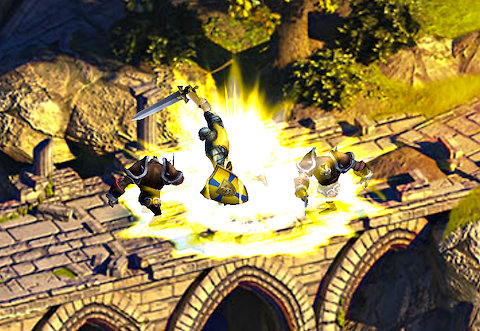With former Gov. Bill Richardson of New Mexico at his side, Mr. Schmidt, who is fond of describing the Internet as the enemy of despots, toured what was presented as the hub of the computer industry in one of the world’s most pitiless police states. Both men gazed attentively as a select group of North Koreans showed their ability to surf the Web.
It is unclear what the famously hermetic North Koreans hoped to accomplish by allowing the visit. But the photos of the billionaire entrepreneur taking the time to visit the nation’s computer labs were bound to be useful to a new national leader whom analysts say needs to show his people that their impoverished nation is moving forward.
It will matter little, those experts say, that the visitors were bundled against the cold, indoors — a sign of the country’s extreme privation — or that the vast majority of North Koreans have no access to computers, much less the Web beyond their country’s tightly controlled borders.
The men’s quixotic four-day trip ended Thursday much the way it began, with some analysts calling the visit hopelessly naïve and others describing it as valuable back-channel diplomacy at a time when Washington and Pyongyang are not on speaking terms (again).
“I’m still spinning my wheels to figure out a plausible motivation for why they went,” said Daniel Pinkston, a North Korea specialist at the International Crisis Group.
Mr. Schmidt and Mr. Richardson insist they accomplished some good — showing the world has not forgotten the plight of an American detained in the North, and at least trying to nudge the tightly sealed nation a bit closer to the fold of globally connected nations.
“As the world becomes increasingly connected, their decision to be virtually isolated is very much going to affect their physical world, their economic growth and so forth,” Mr. Schmidt told reporters after arriving at Beijing International Airport. “We made that alternative very, very clear.”
The unofficial visit, however, raised hackles in Washington, and provided rich fodder for commentators and comedians. Even before the Americans left Pyongyang, someone created an account on Tumblr, the popular social blogging site, called “Eric Schmidt looking at things,” that parodied sites (themselves parodies) featuring the country’s leaders earnestly inspecting livestock, soldiers or leather insoles. (Mr. Schmidt is shown looking intently at computer screens, “the back of a North Korean Student,” and Mr. Richardson.)
Others were less kind. Senator John McCain, Republican of Arizona, took to Twitter to call the self-appointed delegation “useful idiots,” and John R. Bolton, a former United Nations ambassador, said the delegation was unwittingly feeding the North Korean propaganda mill as it sought to burnish the credentials of Kim Jung-un, the nation’s leader, who is in his 20s.
“Pyongyang uses gullible Americans for its own purposes,” Mr. Bolton wrote in The New York Daily News.
The State Department, meanwhile, called the visit “not particularly helpful” given efforts by the United States to rally international support for tougher sanctions following North Korea’s recent launching of a rocket that intelligence experts say could help in the development of missiles that could one day reach the United States.
As if on cue, the North Korean news media hailed the visit by “the Google team” — which included Jared Cohen, who leads Google’s think tank — highlighting their visit to the mausoleum where Mr. Kim’s grandfather and father lie in state. There, Mr. Richardson and Mr. Schmidt “expressed admiration and paid respect to Comrade Kim Il-sung and Comrade Kim Jong-il,” the North’s main party newspaper, Rodong Sinmun, said.
Choe Sang-Hun contributed reporting from Seoul, South Korea, Claire Cain Miller from San Francisco, and Edward Wong from Beijing.
Article source: http://www.nytimes.com/2013/01/11/world/asia/eric-schmidt-bill-richardson-north-korea.html?partner=rss&emc=rss
